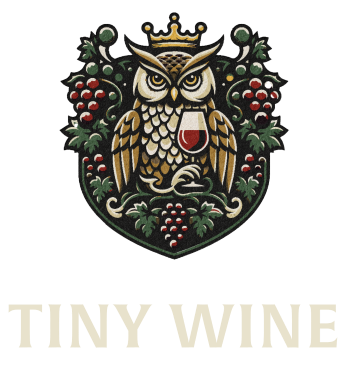In the world of wine, there exists a realm where taste transcends mere pleasure, where each sip is a symphony of flavours, and each bottle an artefact of craftsmanship. This is the domain of fine and rare wine - a connoisseur's treasure trove, a collector's paradise, and an investor's oasis.
Defining Fine Wine: Beyond the Grape
Fine wine isn't just fermented grape juice; it's a status symbol for many, an experience, an embodiment of terroir, tradition, and technique. It's a product of meticulous vineyard management, expert winemaking, and the alchemy of time. Tasting a fine wine tantalises the senses with its complexity, balance, and depth, offering a journey through the vineyards, the seasons, and the stories encapsulated within each bottle.
While definitions may vary, fine wine often encompasses wines from prestigious regions like Bordeaux, Burgundy, Champagne, Piedmont and Napa Valley, among others. These wines command attention not just for their taste, but for their provenance, rarity, and reputation—a combination that elevates them to the echelons of luxury.
Why the High Price Tag? Deciphering the Enigma
Fine wine's price tag isn't solely a reflection of its taste; it's a reflection of demand, scarcity, and prestige. Rarity plays a pivotal role—limited production runs, small vineyard parcels, and exceptional vintages all contribute to the allure of exclusivity, it is finite. Moreover, the mystique surrounding certain regions and producers adds an intangible value—a cachet that transcends the liquid itself.
Quality, naturally, plays a significant part. Fine wines often undergo rigorous selection processes, with only the best grapes making the cut. Ageing, meticulous blending, and extended bottle maturation further enhance complexity, resulting in wines that are not just delicious, but age-worthy and collectible.
But perhaps the most crucial factor in fine wine pricing is perception. Like any luxury good, fine wine's value is influenced by market sentiment, brand recognition, cultural significance and availability. A label bearing the crest of a renowned château or a vineyard growing Charodonnay and/or Pinot Noir with centuries of history can command astronomical prices, driven as much by prestige and scarcity as by palate appeal.
Buying in Bond: Preserving Precious Cargo
For collectors and investors alike, buying (and storing) fine wine "in bond" offers a strategic advantage. In bond refers to purchasing wine while it's being stored in a bonded warehouse under favourable tax conditions. By acquiring wine in bond, buyers can defer excise duty and VAT until the wine is released for consumption—a benefit for investors looking to minimise upfront costs.
Moreover, storing wine in bond offers optimal conditions for aging. Bonded warehouses provide a controlled environment, maintaining consistent temperature and humidity levels to safeguard the wine's integrity. This ensures that each bottle reaches its full potential, preserving flavor, aroma, and investment value.
Buying in bond also affords flexibility. Investors can choose when to release their wine for consumption or resale, timing their transactions to capitalise on market trends and maximise returns. Whether it's a short-term flip or a long-term cellar investment, buying in bond empowers collectors to curate their portfolios with precision and patience. Fine wine is often bought and sold under bond, without the owners ever actually seeing or touching the bottles.
Fine Wine as an Investment: Uncorking Opportunities
In recent years, fine wine has emerged as a compelling alternative asset, offering diversification, stability, and potential for capital growth. Unlike traditional investments, fine wine's value isn't tied to economic cycles or market volatility; instead, it thrives on scarcity, prestige, and enduring demand, meaning it rarely drops in price.
Historically, fine wine has delivered impressive returns, outperforming equities and bonds over certain periods. Iconic vintages from esteemed producers can appreciate significantly over time, driven by growing global demand and dwindling supply - like we said, finite. This presents an opportunity for investors to generate value whilst indulging their passion for wine.
However, fine wine investment isn't without its risks. Market liquidity can vary, with certain regions or producers experiencing fluctuations in demand. Vintage variation, climate change, and geopolitical factors can also impact wine quality and market sentiment, influencing investment returns.
Fine wine investment requires patience and discipline. Unlike stocks or bonds, wine requires time to mature and appreciate in value. Investors must adopt a long-term perspective, viewing wine as a store of value rather than a short-term speculative asset.
In conclusion, fine wine buying and investment offer a blend of pleasure and profit, where connoisseurship meets capital. Defined by craftsmanship, provenance, and prestige, fine wine transcends mere beverage status, embodying the artistry and allure of the vine. Whether enjoyed for its hedonistic pleasures or pursued for its investment potential, fine wine continues to captivate enthusiasts and investors alike, offering a taste of luxury that's truly intoxicating.


